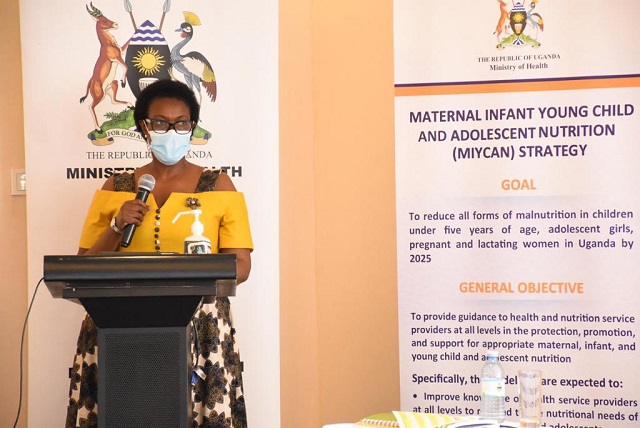
Kampala, Uganda | THE INDEPENDENT | Uganda has a long way to go in reducing maternal mortality, according to the Minister of Primary Healthcare Margaret Muhanga. She made the remarks during the first Maternal and Infant Health Quality Care Forum in Kampala on Tuesday.
According to Muhanga, while the country has been able to increase the number of mothers delivering from health facilities, a lot needs to be done to ensure that Uganda meets the world’s recommended standard regarding maternal deaths.
Uganda’s maternal mortality rate as of 2016 stood at 336 deaths per 100,000 people. This is 266 mothers more dying compared to the World Health Organisation standard, which stands at 70 deaths per 100,000 live births.
According to health officials, the majority of mothers die due to bleeding, preeclampsia, and sepsis during and after delivery. Recent data from the health ministry shows that the number of women who are dying daily during childbirth had reduced from 16 to 5.
While this is an improvement, Dr. Richard Mugahi, the assistant commissioner in charge of Maternal and Infant Health, says the figure could be lower. According to Dr. Mugahi, the country is still recording a high number of deaths because some mothers go to traditional birth attendants to deliver their babies instead of trained health professionals.
“While many women are delivering from health facilities, some still go to traditional birth attendants who cannot handle complications like hemorrhaging and pre-eclampsia when it occurs. If women went to health facilities where trained professionals are available, this number would go down,” he said.
In addition to this, few women go for antenatal visits. According to the ministry of health, 49 percent of expectant mothers do not attend antenatal clinics. Dr. Mugahi says more sensitization is needed to educate women about the importance of antenatal visits.
“Research shows that women who go for at least eight antenatal visits have higher chances of having problem-free deliveries. But this is not happening. We need to find out why these women are not attending all antenatal visits and then come up with ways to sensitize them about their importance,” he said.
WHO officials are however calling for more funding for the sector. Dr. Olive Ssentumbwe, a family health expert from WHO recommended that the government starts focussing on investing in measures that can stop mothers from dying.
“We all know that some of the causes of maternal deaths can be prevented. For conditions such as preeclampsia, we know that the use of blood pressure measuring machines would help but some health facilities do not have such simple equipment. We need to invest more in providing basic health equipment to ensure that mothers stop dying,” Dr. Ssentubmwe said.
****
URN
 The Independent Uganda: You get the Truth we Pay the Price
The Independent Uganda: You get the Truth we Pay the Price



